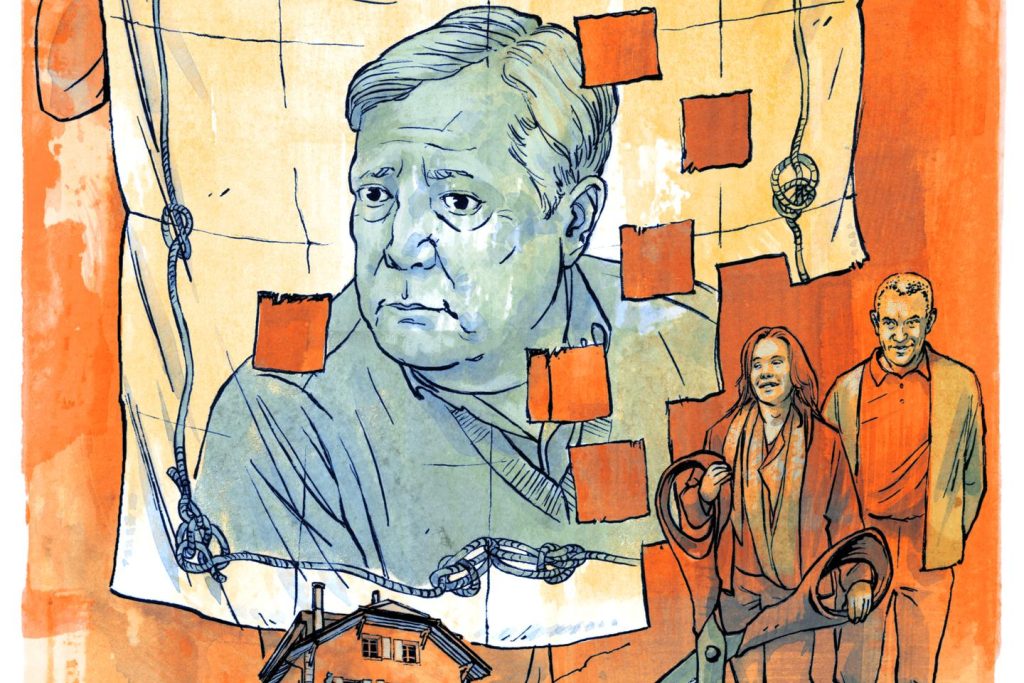Lost in the Giants of the Swiss Valais
What is Nicolas Puech thinking as he stands in the vast, echoing halls of a former hotel, nestled in the heart of the Ferret mountains in the Swiss Valais? It’s a place far too grand for a single resident, a stark contrast to the luxurious, yet manageable, life he once led. "He’s lost," one of his distant cousins sighs, a sentiment Puech himself echoes. This sense of disorientation is not just physical but deeply financial and emotional. At 82, Puech is the grandson of Emile-Maurice Hermès, the patriarch who once held a significant stake in the luxury goods giant, Hermès. Despite once being one of the biggest individual heirs in the family, he now claims to have discovered himself "ruined," unable to find any trace of his 6 million shares, which are worth a staggering 12 billion euros. The story of his downfall is a complex and controversial one, involving allegations of fraud and the betrayal of trust by his former friend, Eric Freymond.
The Accusation and the Rejection
In September 2023, feeling betrayed and desolate, Nicolas Puech filed a complaint against Eric Freymond, the man he once trusted with his fortune. The complaint alleged a "gigantic fraud" that had left him penniless and without the legacy he was entitled to. However, the Court of the Canton of Geneva, in a judgment rendered on July 12, 2024, rejected Puech’s accusations. The court’s decision was based on the fact that for the past 24 years, Puech had voluntarily entrusted Freymond with the management of his wealth, signing numerous proxies, blank documents, and granting him access to his accounts. The judgment noted, "The Appellant complains of a large-scale scam, but does not devote any motivation for his appeal." The cer concourt furthluded that Puech’s blind trust in Freymond did not amount to evidence of improper or disloyal behavior. The central questions of the case remain unanswered: when and how did these billions of euros disappear, and who or what hands did they fall into?
A Family Legacy and a Blended Clan
The tale of Nicolas Puech’s alleged ruin is deeply intertwined with the history and dynamics of the Hermès family. Hermès, founded in 1837, is one of the world’s most prestigious luxury brands, known for its exquisite craftsmanship and timeless designs. The family has maintained a strong grip on the company, with various branches and members managing different aspects of the business over the years. Puech’s grandfather, Emile-Maurice Hermès, played a pivotal role in the company’s growth and success, ensuring that the family’s legacy would be secure for generations to come. However, the family’s unity was challenged by the arrival of Bernard Arnault, often referred to as the "Wolf of Kashmir," the CEO of LVMH, a major competitor and frequent antagonist of Hermès. Arnault’s attempts to gain control over Hermès through various corporate maneuvers have been well-documented, adding another layer of tension to the family’s internal conflicts.
The Trust and the Betrayal
Nicolas Puech’s relationship with Eric Freymond began as one of trust and camaraderie. Freymond, a businessman and financial advisor, became a close confidant of Puech, who saw him as a reliable steward of his vast wealth. For over two decades, Puech signed over proxies and blank documents, allowing Freymond to manage his fortune. This arrangement seemed to work well, with Puech enjoying the fruits of his inheritance without the burden of day-to-day financial management. However, the harmony was disrupted when Puech began to suspect that his wealth was being siphoned away. The exact moment of this realization is unclear, but the consequences were immediate and severe. Puech’s trust turned to suspicion, and he ultimately filed a complaint, accusing Freymond of orchestrating a massive fraud. Freymond, for his part, vehemently denies any wrongdoing, maintaining that his actions were always in Puech’s best interest.
Romance and Disappointment
The story of Nicolas Puech’s downfall is not just a tale of financial woe but also one of personal disappointment. Puech and Freymond’s relationship was not just professional; it was also deeply personal. The two men shared a bond that went beyond business, and Puech often saw Freymond as more than just a financial advisor. This personal connection made the betrayal all the more devastating. The romance between the two men, both in the figurative sense of close friendship and possibly in a more literal sense, adds a poignant dimension to the legal battle. Puech’s sense of loss is not just about the money but about the betrayal of a friend he once held in high regard. The court’s rejection of his complaint, while based on technicalities, deepened his sense of isolation and confusion, leaving him feeling abandoned and dispossessed.
The Lingering Questions and the Unfolding Drama
Despite the court’s decision, many questions remain unanswered. The case is far from over, and the drama continues to unfold. Swiss judges did not address the central issues of when and how the billions of euros disappeared or who ultimately benefited from the alleged fraud. To understand the full extent of this imbroglio, one must delve into the intricate web of big money, romantic entanglements, and twisted financial maneuvers that define this story. For now, the affair remains classified, with the justice system hesitating to provide a clear resolution. The legacy of Emile-Maurice Hermès, once a symbol of wealth and continuity, has become a minefield of suspicion and legal challenges, leaving Nicolas Puech and his family caught in a web of uncertainty and conflict.












